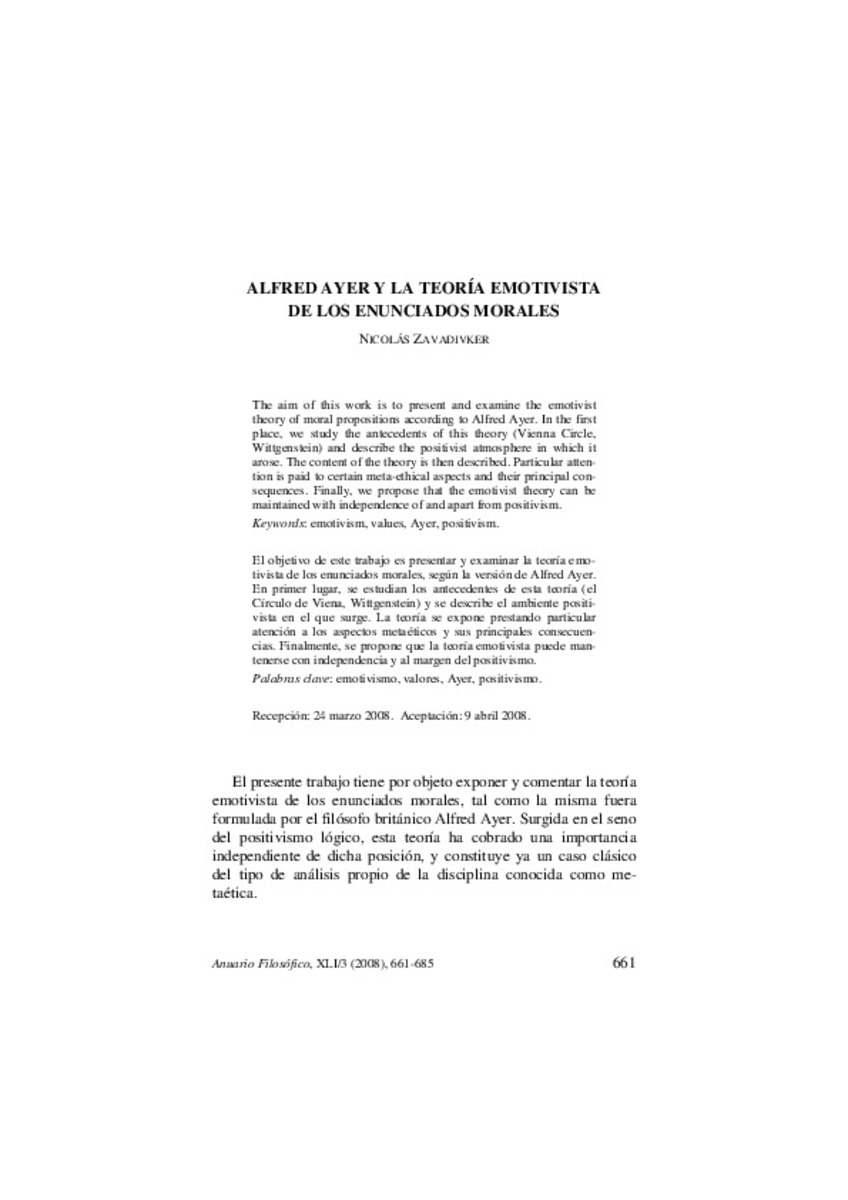Full metadata record
| DC Field | Value | Language |
|---|---|---|
| dc.creator | Zavadivker, N. (Nicolás) | - |
| dc.date.accessioned | 2012-07-04T11:03:30Z | - |
| dc.date.available | 2012-07-04T11:03:30Z | - |
| dc.date.issued | 2008 | - |
| dc.identifier.citation | Zavadivker, N. (2008). ""Alfred Ayer y la teoría emotivista de los enunciados morales"". Anuario Filosófico, 41 (3), 661-685 | es_ES |
| dc.identifier.issn | 0066-5215 | - |
| dc.identifier.uri | https://hdl.handle.net/10171/22843 | - |
| dc.description.abstract | The aim of this work is to present and examine the emotivist theory of moral propositions according to Alfred Ayer. In the first place, we study the antecedents of this theory (Vienna Circle, Wittgenstein) and describe the positivist atmosphere in which it arose. The content of the theory is then described. Particular attention is paid to certain meta-ethical aspects and their principal consequences. Finally, we propose that the emotivist theory can be maintained with independence of and apart from positivism. | es_ES |
| dc.language.iso | spa | es_ES |
| dc.rights | info:eu-repo/semantics/openAccess | es_ES |
| dc.subject | Ayer, Alfred | es_ES |
| dc.subject | Emotivismo | es_ES |
| dc.subject | Positivismo | es_ES |
| dc.subject | Valores | es_ES |
| dc.title | Alfred Ayer y la teoría emotivista de los enunciados morales | es_ES |
| dc.type | info:eu-repo/semantics/article | es_ES |
| dc.type.driver | info:eu-repo/semantics/article | es_ES |
| dc.identifier.doi | 10.15581/009.41.29223 | es_ES |
Files in This Item:
Statistics and impact
Items in Dadun are protected by copyright, with all rights reserved, unless otherwise indicated.






